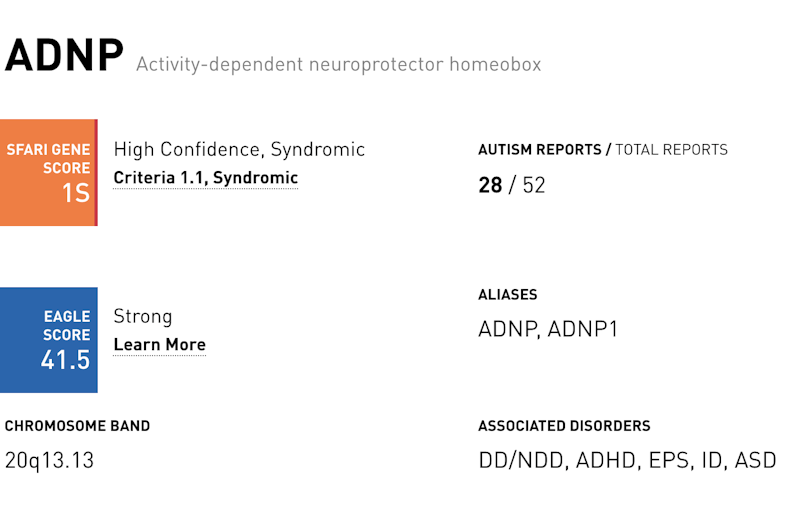
filo/iStock
The Simons Foundation Autism Research Initiative (SFARI) is pleased to announce the inclusion of an additional gene scoring metric in SFARI Gene, SFARI’s compendium of information about genes implicated in autism spectrum disorder (ASD). The new metric is called EAGLE (Evaluation of Autism Gene Link Evidence), and an EAGLE score will eventually accompany the current scoring system of each gene in the database.
Conceived by a multidisciplinary group of international experts, the scoring system was first described in an article by Christian Schaaf et al.1 The EAGLE system expands on pre-existing frameworks (notably that of ClinGen) to evaluate evidence for a gene’s association specifically with ASD, rather than potentially with a broad range of neurodevelopmental phenotypes. “We realize that thus far no gene is associated with autism alone, but typically with neurodevelopmental disorders in a broader sense. However, for EAGLE, we evaluate the evidence that has been reported and published for that gene in association with ASD phenotypes specifically,” says Schaaf.
Identifying genes that show more of an association with ASD than with intellectual disability or developmental delay is an ongoing interest and subject of debate in the field of autism research. It is SFARI’s hope that adding the EAGLE scores to SFARI Gene will help researchers track the evidence as it evolves.
Under the EAGLE approach, a “high-confidence” designation for association with ASD requires evidence of a diagnosis by an expert clinician, a gold-standard assessment method (e.g., Autism Diagnostic Observation Schedule or Autism Diagnostic Interview-Revised) or an explicit mention of a diagnosis based on the Diagnostic and Statistical Manual of Mental Disorders (DSM) or International Classification of Diseases (ICD) criteria. “Medium-confidence” associations involve a description of symptoms in the domains of social communication and repetitive behavior. Finally, “low-confidence” associations are based on simple mentions of ASD or autism-related features.

SFARI Gene has long provided access to several gene scoring systems in the ASD literature, but EAGLE offers an important additional focus on the clarity of the ASD phenotype as described in each paper.
Ongoing efforts to provide EAGLE scores for each gene in the database will be led by an expert team including Schaaf at the University of Heidelberg and Stephen Scherer, Jacob Vorstman and Olivia Rennie at the Hospital for Sick Children and University of Toronto.
“A particular strength of the EAGLE framework is that it is developed through a collaboration of both phenotype and genotype experts,” Vorstman notes. “With EAGLE, we hope to provide an evidence-based, powerful tool to ASD researchers and medical providers. Ultimately, our aim is to generate knowledge and to improve medical care for people with ASD worldwide.”


